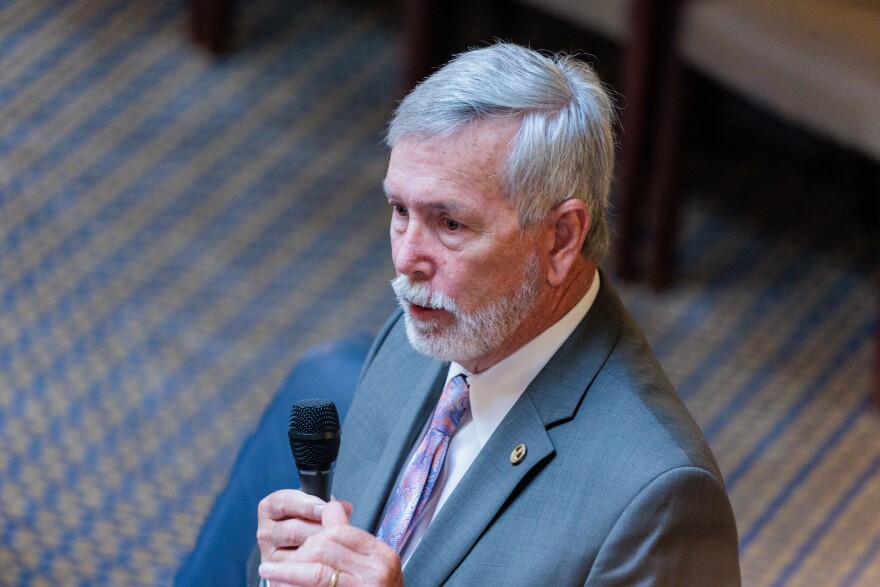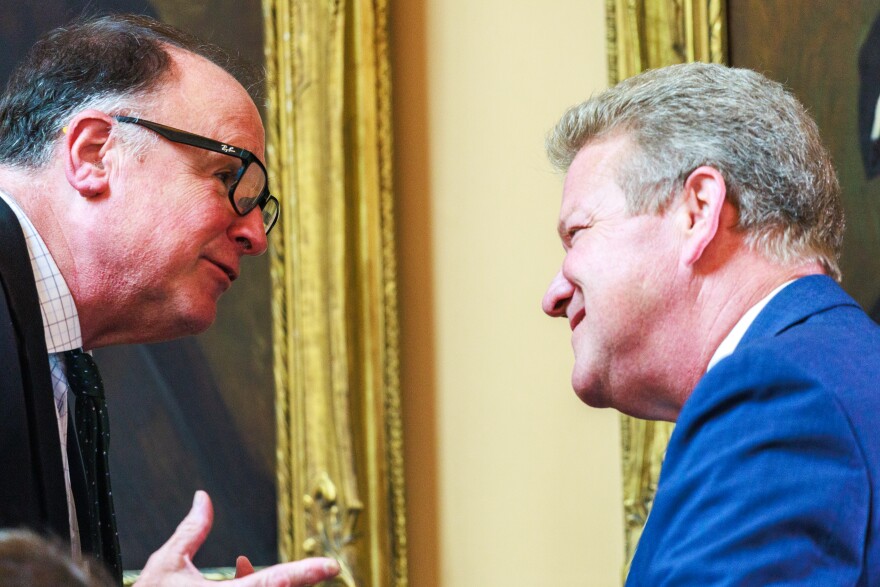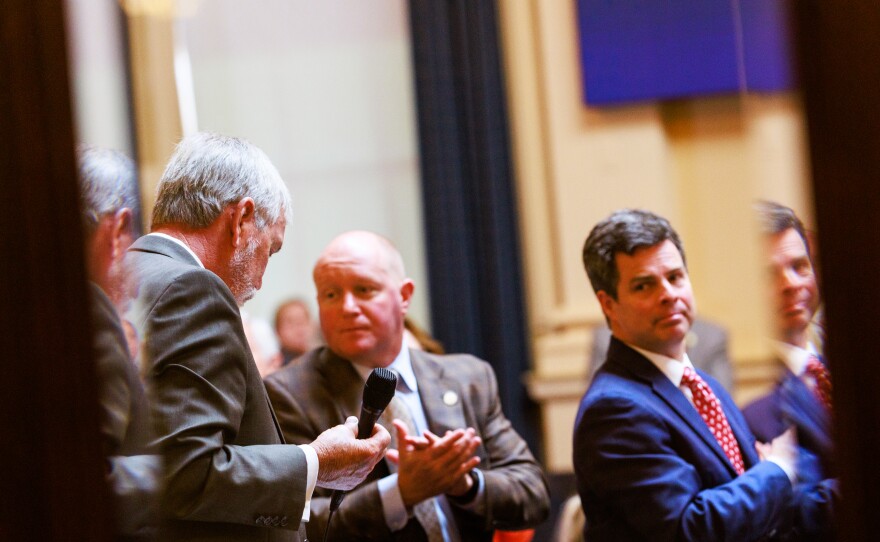Virginia lawmakers overwhelmingly passed a budget agreement Wednesday that will send an additional $645 million to state public schools and give teachers a 2% raise — on top of the 5% increase approved last year.
The budget also includes about $1 billion in tax reductions, mostly through one-time payments of $200 for individuals and $400 for people filing jointly.

The agreement is the result of months of talks between a small group of negotiators in the Democrat-controlled state Senate and GOP-majority House of Delegates. It’s now up to Gov. Glenn Youngkin to either approve the agreement as-is or submit amendments to lawmakers in the next seven days.
In a statement, Youngkin praised lawmakers for passing a bill he said addressed “shared priorities” like education, public safety and behavioral health.
“While the process took longer than needed, more than $1 billion in tax relief is on the way to Virginia veterans, working families and businesses,” Youngkin said.
The agreement modifies the budget lawmakers passed last year to account for an additional $5.1 billion in revenue. Republicans, led by Youngkin, pressed for broader permanent tax cuts for corporations and businesses, arguing the surplus showed Virginians were overtaxed.
Democrats pressed for the bulk of the money to go to state services, particularly education.

School districts and most lawmakers agree education funding is sorely needed. A July state report found Virginia schools receive less K-12 funding per student than the 50-state average, the regional average and three of Virginia’s five bordering states. The budget establishes a workgroup to develop a long-range plan to fix the issue.
Budget negotiators remained at odds for months. In an interview, Del. Barry Knight (R–Virginia Beach), one of the agreement’s key architects, attributed the delay to a busy primary campaign season.
“I think everyone recognizes now that we've got a very good compromise,” Knight said. He said he’d kept the governor informed of the budget’s contents: “It’s his prerogative to look at it and see if he has any objections to anything. But at this point, he hasn't raised any with me.”
The agreement includes:
- An increase in the standard deduction to $8,500 for individuals and $17,000 for joint filers
- A 2% pay increase for state employees, and a total of 7% for public school teachers in 2024
- Nearly $650 million in new funding for Chesapeake Bay cleanup and water quality initiatives (though it doesn’t include $100 million in stormwater assistance Youngkin and both chambers had included in their budget to improve Richmond’s aging combined sewer system)
- Roughly $200 million for business-site acquisition and development to help lure employers to the state
- $152 million for school support positions, such as custodians
- $150 million to support the widening of Interstate 64 to six lanes between Henrico and York counties
- $156 million to mental health services, more than half of which would go toward crisis stabilization and receiving centers for people in the midst of a mental health crisis, as well as permanent supportive housing for people with serious mental illness
- $20 million in grants for school security
- $1.1 million to step enforcements of rules prohibiting intoxicating hemp products
- $250,000 to create an ombudsman’s office overseeing state prisons
State Sen. Creigh Deeds (D–Charlottesville), who helped hammer out the final agreement, said Senate Democrats had limited leverage in budget negotiations, given the House and executive mansion were controlled by Republicans.
But he said their refusal to give in on most permanent tax cuts helped prevent fiscal calamity down the road.
“The compromise struck was the very best we could have done,” Deeds said. “In fact, it was probably better than we should’ve done.”



